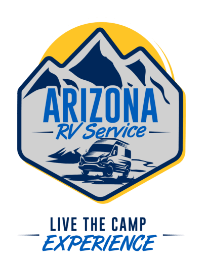Your Guide to RV Generators
Your RV is intended to serve as your home away from home, so that you feel cozy and comfortable wherever you are, even in the remotest locations. But part of that residential feeling depends on the reliability of your power source, as it fuels your appliances, electronics, and lighting.
Generally, RV parks provide power hookups as part of the site rental, but these can be unreliable and prone to blackouts or brownouts, leading you to need another source of power. Additionally, if you’re dry camping, also known as “boondocking,” you’ll have to provide your own power because you won’t have any hookups available. This is where the generator comes in. No matter where you are, a generator can supply sufficient power to your rig day and night.
There are a few things you should know about generators, such as how to use them safely and keep them maintained. That’s where this guide will come in handy, so read on to learn more!
Selecting a Generator
Not every generator is built exactly the same, and not every generator will work in every RV. You’ll need to take some time and do some research to determine what generators will work for your particular rig. Do some math to calculate whether a particular generator can support your RV’s wattage, which you can add based on the wattage labels on your various appliances. This will tell you the amount of watts your generator needs to supply to keep your rig fully functional.
Next, you should figure out how to power your generator. Your three primary sources of fuel for a generator are propane, gasoline, and diesel. There are advantages and drawbacks to each type of fuel, so you’ll have to think about what makes sense for your budget and what will work efficiently with your RV. This may even depend on the type of fuel that your RV uses: for example, a diesel-run RV will likely need a diesel-run generator to power everything.
Generator Maintenance
Maintaining your generator doesn’t require a great deal of effort on your part, but it is necessary to perform certain tasks at regular intervals. Keep an eye on your hour meter so you can change the oil on a regular basis, approximately after every 200 operating hours. When you’re storing your generator for the season, you’ll want to run a heavy load once a month so that it remains functional.
Safety Concerns
Much of the time, your generator won’t be endangering your family. However, without proper care, a malfunctioning generator can release toxic carbon monoxide. To prevent this, you’ll need to ensure that the exhaust system is working as it should be. The exhaust draws fumes out of your rig to prevent them from building up and creating an unsafe situation. Another good way to keep yourself safe is to install a carbon monoxide detector in your RV. This will alert you if anything is amiss so that you can get to safety if there is a leak, then get your RV checked out and repaired.
RV generators are reliable, easy to maintain, and can even be used to provide auxiliary power at campsites if the system is down so that you won’t languish in the dark or have to stop everything you’re doing because of a power outage. If you need help with RV service or repairs, call us or visit our dealership in Mesa, Arizona, today! Arizona RV Service proudly serves all those in Gilbert.
